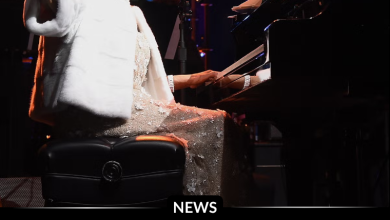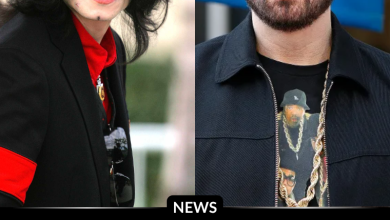They Said Aretha Franklin Has a Low IQ — Her Response Made Everyone Regret Underestimating the Queen’s Intelligence
OPINION: This article may contain commentary which reflects the author's opinion.
When people spoke of Aretha Franklin, they called her the Queen of Soul. But long before the titles, awards, and presidential honors, there were those who underestimated her—dismissing her as “just a singer” or questioning her intelligence to manage her own career. Rumors even circulated that she had a “low IQ.” Her response? Pure Aretha: graceful, fierce, and unmistakably brilliant.
“I don’t need to prove my intelligence,” she once said. “I built mine one song at a time.”
It was a statement only Aretha could make—a quiet thunder wrapped in confidence. Her genius wasn’t about numbers or tests; it was about mastery—of music, emotion, business, and power. She read contracts with the same precision she read melodies.
Those who knew her best described Aretha as one of the sharpest minds in any room. She managed her finances, negotiated her own recording deals, and famously demanded payment in cash before performances, often keeping it tucked in her handbag until after the show. “She understood the industry better than most of the men who ran it,” recalled a former producer. “That’s not low IQ—that’s high survival.”
Aretha’s musical brilliance was matched only by her emotional intelligence. From “Respect” to “(You Make Me Feel Like) A Natural Woman,” she didn’t just sing songs—she transformed them into declarations of identity, dignity, and strength. Her ability to interpret and elevate lyrics into cultural touchstones required a mind that saw meaning where others heard only melody.
“She was a composer, an arranger, a conductor, and a storyteller,” said Clive Davis, the music mogul who worked closely with her. “Aretha didn’t just perform music—she understood it at a cellular level.”
She also understood people. When critics tried to box her into categories—gospel or R&B, political or romantic—she refused to be defined by anyone but herself. “I know who I am,” she once said. “That’s enough education for me.”
In her later years, as tributes poured in from presidents, poets, and performers alike, one truth became undeniable: Aretha Franklin’s intelligence wasn’t just musical—it was strategic, emotional, and deeply spiritual.
The woman who taught the world to demand Respect didn’t just ask for it.
She earned it—with a brilliance no test could measure.
And for those who once doubted her?
Her legacy stands as the answer.



